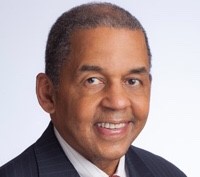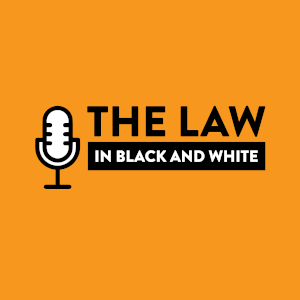The Law in Black and White Episode 6 Recap: Celebrating Black History Month with David Baker Lewis
In episode 6 of The Law in Black and White, a series on Black History Month begins where Jon and Bryan virtually sit down with prominent Black attorneys to reflect on their opportunities, paths, and the observations they have taken away from their careers. Through their personal insights, we hope to gain a greater understanding of a general history of their generation.
David Baker Lewis virtually sits down this week to discuss his career path. Mr. Lewis is a Michigan native and graduated with his bachelor’s degree from Oakland University. He then went on to receive an MBA from the University of Chicago Booth School of Business and a J.D. from the University of Michigan. In 1972, Mr. Lewis founded Lewis, White, and Clay (now Lewis & Munday), one of the oldest and largest minority owned law firms in the country. He served as Chairman and Chief Executive Officer of Lewis & Munday from 1972-1982 and again from 2004-2010. With four decades of experience, Mr. Lewis is an expert in municipal finance, specializing in municipal bonds, including revenue bonds, cash flow borrowing, and bond purchase agreements. With this knowledge, he led Lewis & Munday to become the first minority owned law firm to be listed in the Bond Buyer’s Directory of Municipal Bond Dealers, also known as the Red Book. Prior to founding Lewis & Munday, Mr. Lewis served as a law clerk for The Honorable Theodore Levin in the United States District Court for the Eastern District of Michigan. Today, he serves on a number of corporate and non-profit boards.
In this episode, Mr. Lewis generously breaks down his journey to law school as a young Black student in the 1960s and his decision to start his own firm. He paints an illuminating picture of what it was like to be a Black lawyer during the civil rights movement and describes his decision to continue his corporate practice alongside the ever-present struggles of the Black community. Some highlights from his journey are provided below.

Why the University of Michigan?
After first being denied admission to the University of Michigan Law School in 1965, Mr. Lewis went on to get his MBA at the University of Chicago in the hopes of making himself a more marketable applicant. The MBA served its purpose as Mr. Lewis later re-applied to the University of Michigan Law School and was granted admission.
For Mr. Lewis, the University of Michigan was attractive because his grandfather had received his law degree from there in 1902. The school also had a reputation for being both a competitive school and for more liberally accepting Black students. He estimates that he was one of about 10 Black students out of a law school class of 330.
Law School and a Legal Career During the Civil Rights Movement
Attending law school during the same period where Dr. King was assassinated and the height of the civil rights movement, Mr. Lewis describes law school as “exhilarating in some respects, depressing in others.” He goes on, “law school was seen as a pathway to change social conditions” and while many lawyers at the time graduated and did what he refers to as “personal lines” practice, like real estate, leases, criminal law, and small business matters, he was interested in corporate law. He joined a minority owned law firm in Detroit before he eventually founded his own firm with two other lawyers.
Providing Young Black Lawyers with Opportunities
At Lewis & Munday, Mr. Lewis took a “family approach” to the practice. He focused on mentoring young associates and encouraging their involvement in the community. He believed in “lean[ing] into the evolution of where we saw the law practice going.” This meant pushing for a more integrated practice, including hiring both Black and women attorneys.
To hear more from Mr. Lewis, the entire episode is available on our website, Spotify. Apple Podcasts and Stitcher.
Subscribe to our podcast and share your thoughts on social media.

Finally, we would like to think our sponsor, Shearman & Sterling LLP for sponsoring this week’s episode.
Shearman & Sterling is a global elite law firm committed to bringing together diverse cultures, ethnicities and backgrounds to provide the highest output and value for its people, clients and society. Their strategy is data driven, involves client collaboration, and align with the firm’s broader business objectives. Shearman is committed to taking action to provide opportunities for every individual to thrive and experience success, and foster inclusive work environments where people feel valued, engaged and eager to contribute to the success of their clients. The firm encourages its lawyers and business services professionals to bring their authentic selves – of different cultures, ethnicities, orientations, experiences, beliefs, and more – to work and leverage their unique viewpoints to advise clients on the most sophisticated legal matters.




